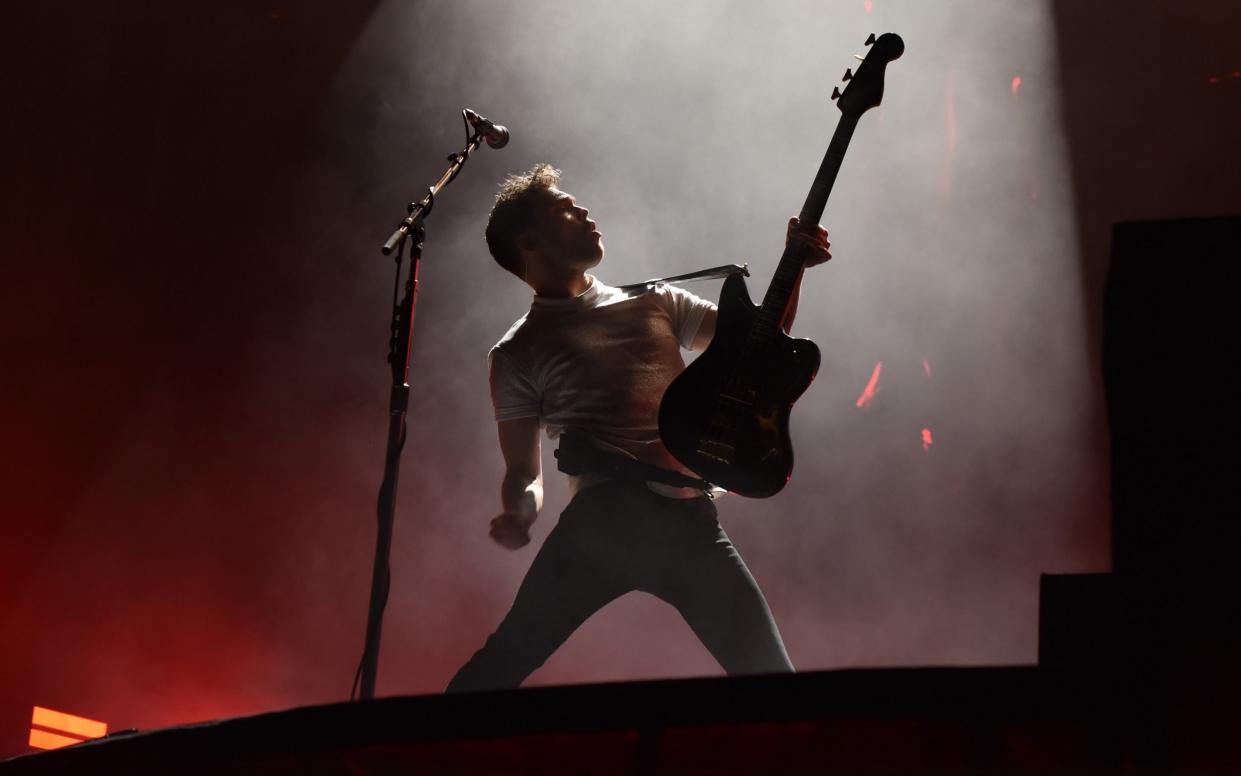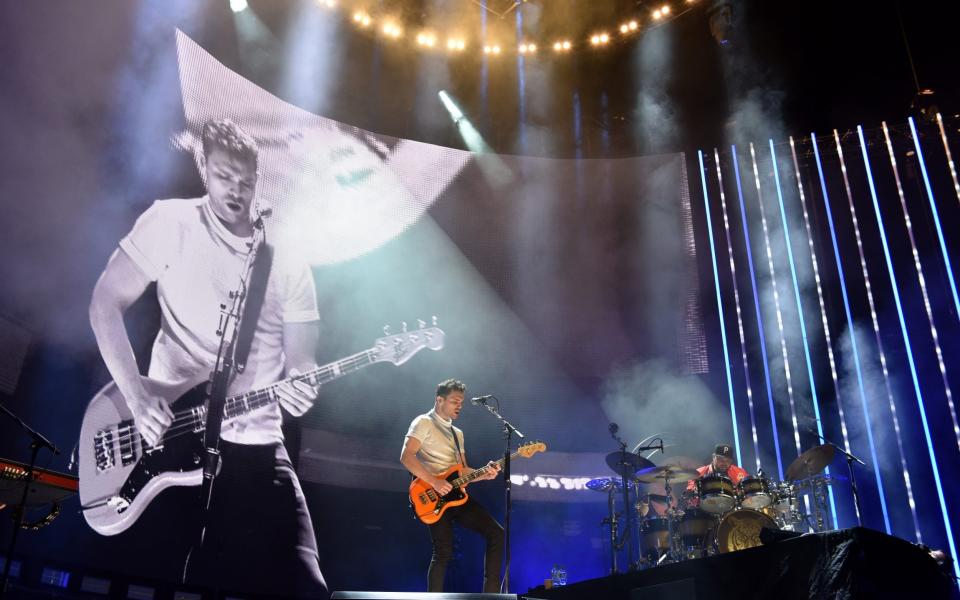Thought rock is dead? Royal Blood prove otherwise

At 9pm sharp at a sold-out 02 Arena, Royal Blood embarked on a 90-minute rebuke to the naysayers of British guitar music. Over the years, the cry that “rock is dead” has been as dependable as the appearance of daffodils in spring. On the Greenwich peninsula, however, the sight of 20,000 people watching the Brightonian duo thunder away on a stage that in recent times has also supported the weight of similarly raucous UK groups Biffy Clyro and Bring Me the Horizon deftly dispelled the notion that this is a movement in declining health. By the sound of things, you wouldn’t even bother with a get well card.
And, yes, you heard that right: “duo”. Illuminated by a lighting rig resembling a giant power-shower, their faces projected six storeys high on a semi-circular screen at their rear, bassist and vocalist Mike Kerr and drummer Ben Thatcher undertook the lion’s share of their largest headline concert to date as a two-piece band.
Only when performing tracks from Typhoons, the most recent of their three LPs, were they joined onstage by an unobtrusive sideman stationed at a lone keyboard. In what is surely a first for a major-league rock act, the group don’t even have a guitarist – not that you’d know this to listen to them, mind. With hands like baseball gloves, Kerr enticed squeals and riffs from his bass that stood some way beyond the instrument’s normal job description.
That the pair managed to fill every cubic inch of this reliably imposing arena with their authoritative and often genre-hopping sound was an achievement that bordered on the magical. Remarking on their recent 10-year anniversary, the singer’s decision to thank their long-standing live soundman, Phil Jones – whose work at the O2 was among the best I’ve ever heard – was a just and fitting touch. When the pair plunged into Honeybrains, the audience felt the plummeting heaviness not just in their spines, but in their teeth. Truly, I’ve seen six-piece metal bands that don’t shift as much air as this.
The show’s presentational aspect wasn’t always as convincing. Wearing a silver T-shirt (Kerr) and Pittsburgh Pirates cap (Thatcher), the pair were lit only from above and behind – the decision not to illuminate them with spotlights meant that bassist and drummer were at times difficult to separate from their high-tech surroundings. Certainly, a duo who sounded as if they were channelling the ghosts of Cream’s Jack Bruce and Ginger Baker deserved better than this.

With seamless panache, Royal Blood transitioned from dancefloor sexuality (Blood Hands), to pop (Figure It Out) to the kind of music that appeared to have been freshly excavated from the centre of the earth (Lights Out). In what is these days a deeply disreputable rock tradition, they even found time for a short drum solo performed beneath a screen bearing a photograph of Thatcher aside the recently deceased Foo Fighter Taylor Hawkins.
In other words, it was a rewarding night out. Given the preponderance of heritage acts such as Kiss, Def Leppard, Metallica and Iron Maiden, the prominence of Royal Blood, and others like them, ably makes the case that rock music has not only a glittering past, but also a promising future.
Touring until Sunday; royalbloodband.com